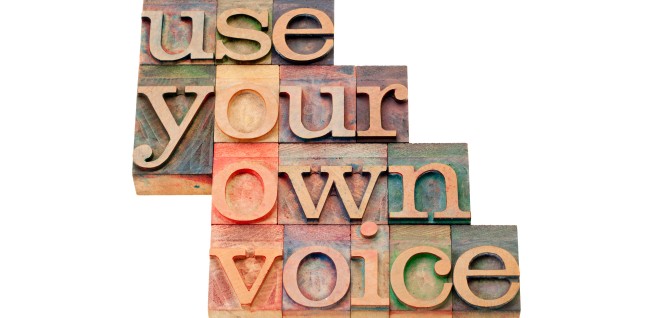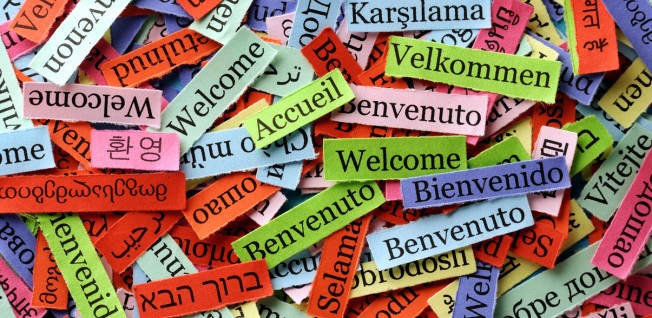Accent: Keep It or Lose It?

If you are on the move already for a while, you eventually managed to learn several languages as I did. This is your strength, and often, sedentary people - if you manage to see any - make you the same tiresome remark: “I wish I could speak languages as you! You are so lucky”. How do these words make you feel? When it happens to me, my first reaction usually is irritation. I often resist telling them how much work and struggle it involved, and how much loss too.
Becoming fluent in a foreign language broadens your world, and opens you some doors and sometimes also some hearts. This is pretty obvious and well known. But in my experience it also involves some loss. And this is usually less acknowledged.
Two Sides to Every Coin
I remember reading a book about multilingualism years ago, a curious reflexion about the loss of sense of humour. It was saying something about how we tend to lose most of our ability to make a good joke when speaking another language. Back then I used to think of myself as being quite witty, and highly appreciated a good joke from others. At the hard times of Perestroika, the humour was often a healthy deflection, a helpful survival strategy.
Later, I became fluent in Italian. Living in magical Naples, even if I learnt how to appreciate the local, baroque, humour, I certainly was less able to produce quality jokes myself. More than once I managed to make my Italian friends laugh, but occasionally it was at my expense; it happened to me to mistakenly use “scappare: to escape” instead of “scopare: to have sex”.
After having spent half of my life abroad and speaking mainly in foreign languages, I am wondering what the risk might be of losing some of my own language? When I go back to my country or read friends’ chat messages, I feel left behind. They use slightly different words, they laugh at new jokes. The language evolves, and quickly enough; and I am not around anymore to keep up with this speed.
Our language is not only our expression tool, but also an intrinsic part of our life story. We make sense of our experience by organizing our thoughts into speech in a given language. Leaving our country of origin we are losing the fluidity of the context.
The whole subject can suddenly become blurred, which creates an understandable confusion around identity. One of the trickiest questions we might be asked then: “What language do you speak?” Have you ever felt confused, not being able to give a straightforward answer?
Linguistic Shame
As a result, I often feel less articulate not only in my new set of languages but also in my own native Russian. When I need to speak with somebody I don’t know well yet, I feel anxious about how my verbal expression will be perceived. Will I be articulate enough? It may often cause frustration on both sides, and does not really help the dialogue. And, what about when you are facing the necessity of writing your CV, or calling a headhunter, writing a report or going through a job interview? The “accent issue” may become a real anxiety buster. When we feel anxious and worried, it is only more likely that we lose some of our verbal skills. Have you ever felt for some reason ashamed of your accent? It certainly happened to me - you know that feeling when somebody asks you to repeat three times, and every time you do, the person still does not get it, and keeps staring at you with the most puzzled expression. By the third time, your initially witty remark loses all its interest, and seems quite stupid. You go blank, you want to sink, to disappear under the ground. You may feel ashamed and eventually start hating this person and yourself. And when feeling ashamed one usually tends to regress and, again, lose one’s verbal and cognitive skills. Welcome to the vicious circle of the linguistic shame!

Keep It or Lose It
The other day I was listening to a French friend speaking over the phone with somebody in London, and wondered how much his noticeable French accent may influence the person on the other side of the line. This person might find the French charming, he even might have some very pleasant associations from his past around French people. But it is also plausible that this accent might trigger some negative emotional experience, which, even if unconsciously, will influence his current emotional reaction. Imagine if the lady on the other side of the line had had the most awful romantic experience with a French guy, or going through divorce with a French husband? Unconsciously she will associate that person to this one, eventually cataloguing him into “the untrustworthy” French guy category, on the conscious level she might just happen to be very busy and forget about his request.
If you are lucky enough, the person in front of you has some positive associations with your accent, if not – you are having a bad start.
The unconscious communication being a subtle matter, in every dialogue, we transmit information by numerous different ways: everything participates in creating the communication field - the tone of our voice, the way we move, the colours we wear. If, in addition, we have an accent, it complicates the matters even more.
If we have experienced any kind of prejudice or have been labelled just because of our accent, we would naturally want to lose it. It is always tough to be a minority. If you feel that way, it takes a lot to display your accent. I always admired those who were blunt enough to show their belonging.
However fluent you are in the language of your new country, some things have to be said in you native language. You know how, if you get really really angry, the words surprisingly come to you in your first language.
Do you find that the swearing is more satisfying in your native language? Does “I love you” seem somehow more meaningful when said in your own language?
The same applies to the field of therapy; after all it is about expressing our feelings and thoughts, and exploring them alongside with somebody in a space free of judgement and prejudice. Sharing our thoughts and feelings usually helps to gain clarity and, eventually also acceptance of our particular, beautiful, funny, southern, unusual, improbable, unbelievable, and unique accent!
Anastasia Piatakhina Giré is an integrative psychotherapist practicing in Madrid, and also worldwide through Skype.










